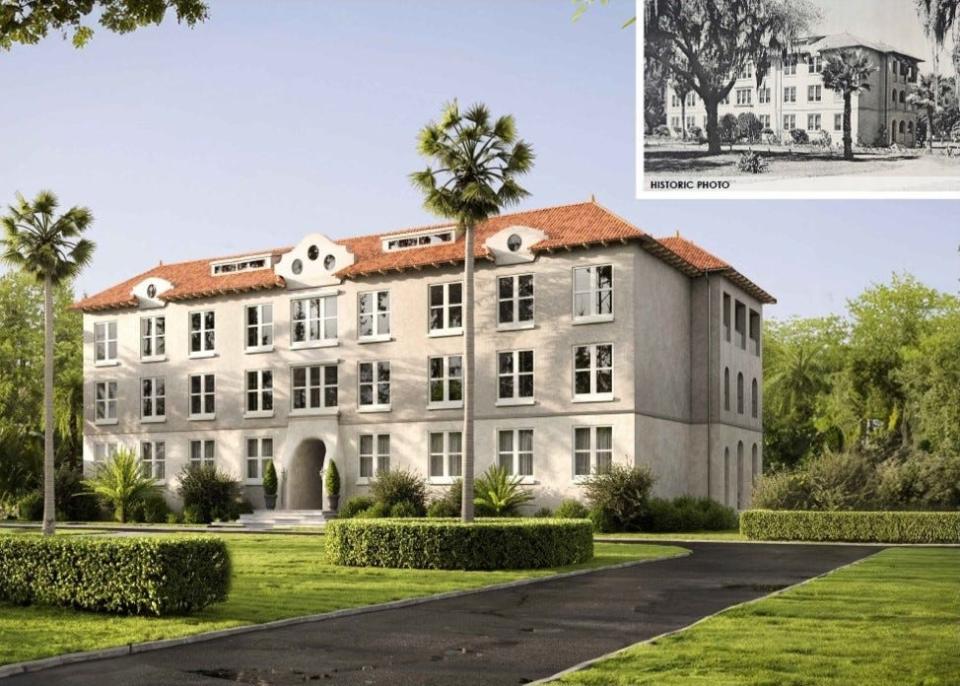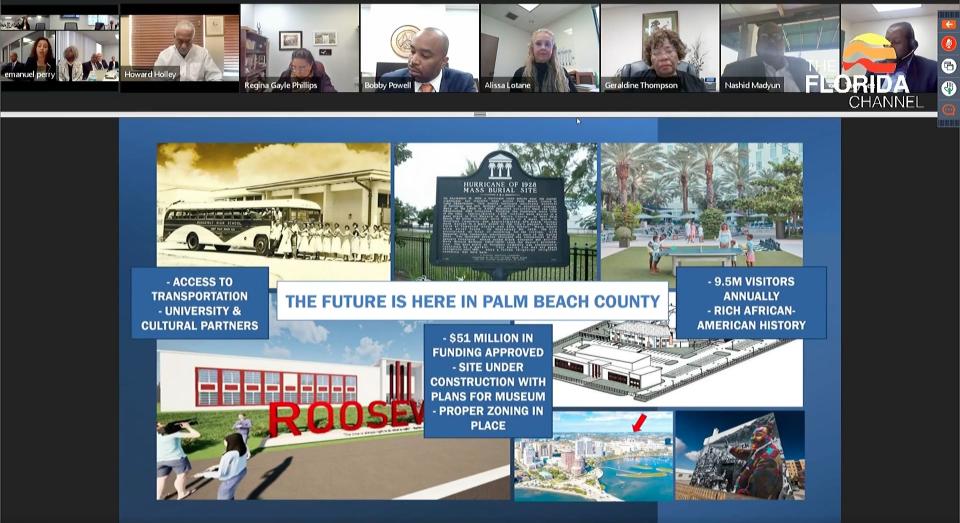State leaders' 'war on woke' shouldn't halt ideas of a Black history museum in Florida
Imagine the state of Florida with its very own Black history museum.
Given the state's ongoing "War on Woke", disparaging valid parts of Florida and American history, it might be hard to wrap one's head around the idea of a national Black historical repository here. But thanks to HB 1441 and SB 1606, legislation filed in 2023 by Rep. Bruce Antoine, D-Orlando and Sen. Bobby Powell, D-West Palm Beach, a task force started the process with its recommendation of St. Augustine as the site for the new museum.
Several communities were considered, including West Palm Beach, which still hopes to create a local Black museum at the site of the historic Roosevelt High School campus. Left to be worked out for the state museum are financial and marketing plans to build and sustain a 100,000-square-foot facility. The initial estimates of roughly $100 million, and recommendations of how those funds will be raised are due to the governor on July 1.

A viable Black museum in Florida can happen, if state leaders resist the temptation to get in its way. The concern — no, fear — is that the politics that confuse cultural misinformation with historic truths will again rear its ugly head. The project remains in its embryonic stage, making it vulnerable to any such whim coming out of the state capitol.
Florida is already home to several smaller, local Black history museums, like the Spady Cultural Heritage Museum in Delray Beach, the Harry T. and Harriette V. Moore Cultural Complex in Mims and the LaVilla Museum in Jacksonville. The idea of a larger Black museum located in the nation's oldest city and the home of one of the earliest free Black communities in the Americas is a deserving undertaking. If there was ever a project that would benefit from a hands-off approach from state government, this is it. Government leaders should approve it and then stand back and let it happen.
Black museums need cash and commitment
Whether the idea is to build a museum devoted to local Black achievement or one that explores the global effects of the transatlantic slave trade, it takes money and consistent public and private sector support to make these facilities a reality, much less commercial attractions that will bring in enough tourists to fuel local economies.
The idea of the International African American Museum in Charleston, S.C., promoting that city's history as an American gateway for an illicit trafficking of African slaves, began in 2000. After raising more than $100 million, the museum opened its doors in 2023. The same vision and dedication led to the creation of the National Museum of African American History and Culture in Washington, D.C., which took decades of lobbying the idea of a national museum highlighting Black America to get congressional approval in 2003, and 13 more years of planning and fundraising before its opening in 2016.

WPB Black museum's baby steps: Schools had no money for Black history museum at Roosevelt High. Then they quietly OK'd $30M
It will take a similar commitment and perhaps even more work to counter the Florida state government's ongoing denigration of Black culture and history. Educators are still smarting from the 2022 Stop W.O.K.E. law that prohibits schools and companies from leveling perceived guilt or blame on students and employees, based on race or sex. A three-judge panel of the 11th U.S. Circuit Court of Appeals recently blocked the state from enforcing a key part of that law. However, that hasn't deterred many conservative state leaders who think talking about race is just another form of indoctrination.
Florida, however, has enough in both its culture and history to host a state museum of Black history. From Fort Mose, in St. Augustine, the first legally sanctioned free African American settlement, to Eatonville, near Orlando, the nation's oldest all-Black township, the accomplishments of Drs. Mary McLeod Bethune, James Weldon Johnson and Zora Neale Hurston, to the atrocities of Axe Handle Saturday and The Groveland Four — the state of Florida has a compelling story to tell.
What state leaders do with the task force's recommendations will determine if that story gets told.
This article originally appeared on Palm Beach Post: State support is crucial to build a Black history museum in Florida

